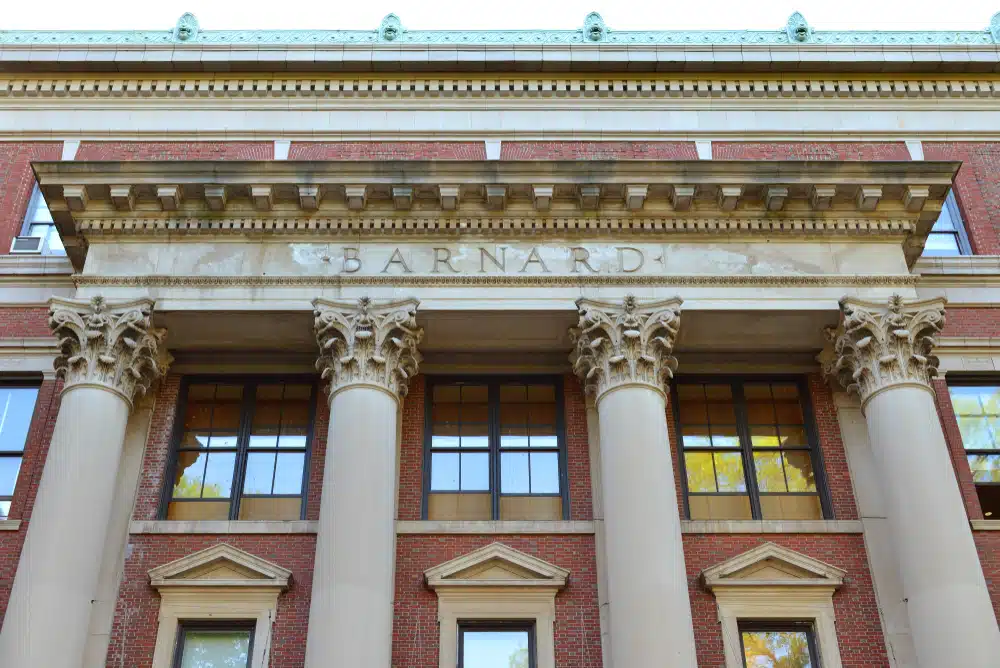What Is a Private School? An Overview of Private Education
Private schools have long been considered an alternative to public education. With their unique approach to learning and tailored programs, they offer students a distinct educational experience. In this article, we will delve into the world of private schools, exploring their definition, history, types, curriculum, admission process, and the pros and cons they offer. By the end, you will have a comprehensive understanding of what private schools are all about.
Understanding Private Schools
Private schools are educational institutions that operate independently of government control. They are typically funded by tuition fees, donations, and endowments. Private schools are known for their emphasis on quality education, smaller class sizes, and individualized attention given to students.
Definition and Basic Concept of Private Schools
Private schools are characterized by autonomy in decision-making, allowing them to establish their educational philosophy, goals, and academic standards. They are not bound by the same regulations and guidelines as public schools, providing them more flexibility to design their curriculum and shape their learning environment.

One of the key advantages of these schools is their ability to tailor their educational approach to meet their students’ specific needs and interests. With the freedom to deviate from standardized curricula, private schools can offer specialized programs in various subjects such as arts, sciences, or technology. This allows students to explore their passions and develop their talents in a supportive and nurturing environment.
Moreover, private institutions often prioritize smaller class sizes, which fosters a more intimate and interactive learning experience. With fewer students in each class, teachers can dedicate more time and attention to individual students, providing personalized instruction and guidance. This individualized approach helps students to thrive academically and encourages a deeper engagement with the material.
The History of Private Education
The origins of private education can be traced back to ancient times. Throughout history, educational institutions run by religious organizations or wealthy individuals have existed to provide education to select groups of students. These institutions aimed to offer an education aligned with specific cultural, religious, or philosophical values.
In ancient Greece, for example, private schools known as “philosophical schools” were established by renowned philosophers like Plato and Aristotle. These schools focused on teaching philosophy, ethics, and critical thinking and attracted students who were interested in pursuing intellectual pursuits.
During the Middle Ages, private education was largely dominated by religious institutions such as monasteries and convents. These institutions provided education to clergy and nobility members, strongly emphasizing religious teachings and moral values.
Private institutions continued to evolve during the Renaissance period, with the emergence of humanist schools that emphasized the study of classical literature, history, and the arts. These schools aimed to cultivate well-rounded individuals with a broad knowledge base and a deep appreciation for the humanities.
As societies modernized and educational systems became more standardized, private schools adapted to meet the changing needs of students. Private schools play a vital role in providing alternative educational options catering to diverse learning styles, interests, and values.
Types of Private Schools
Private schools come in different forms, catering to various educational needs and preferences. Let’s explore the common types of private schools:
Religious vs Non-Religious
Religious private schools are affiliated with a specific religious denomination and integrate religious teachings into their curriculum. These schools often have a strong emphasis on moral values and spiritual development. Students attending religious private schools have the opportunity to engage in religious practices and rituals that are aligned with the beliefs of the affiliated denomination. The curriculum may include religious studies, prayers, and participation in religious ceremonies.

Non-religious private schools, on the other hand, do not have a religious affiliation and offer a secular education. These schools focus on providing a well-rounded academic curriculum that is not influenced by any particular religious beliefs. Students attending non-religious private schools have the freedom to explore various subjects without any religious bias. The curriculum may include a wide range of subjects such as mathematics, science, humanities, and arts.
Single-Sex vs Co-Educational
Single-sex private schools separate students by gender, providing an environment specifically tailored to the learning needs and preferences of boys or girls. These schools believe separating students by gender can eliminate distractions and create a focused learning environment. Single-sex schools often adopt teaching methods and strategies that are tailored to the learning styles of either boys or girls. This approach aims to address the unique needs and challenges faced by each gender, promoting academic success and personal growth.
Co-educational private schools, on the other hand, enroll both boys and girls in the same educational setting. These schools believe in the benefits of mixed-gender education, fostering social interaction and collaboration between students of different genders. Co-educational schools aim to prepare students for the diverse and inclusive society they will encounter in the future. They provide opportunities for boys and girls to learn from each other, develop mutual respect, and challenge gender stereotypes.
Boarding vs Day Schools
Boarding private schools offers students the option to live on campus, providing a comprehensive educational experience that extends beyond the classroom. Students who attend boarding schools have the opportunity to immerse themselves in a supportive and structured environment. Living on campus allows students to develop independence, self-discipline, and time management skills. Boarding schools often offer a wide range of extracurricular activities, fostering a sense of community and providing opportunities for personal growth and leadership development.
On the other hand, day private schools cater to students who commute to school daily. These schools provide a traditional classroom-based education, where students attend classes during the day and return home in the evenings. Day schools often offer a variety of extracurricular activities and clubs that students can participate in after school hours. Students attending day schools have the advantage of being able to maintain close connections with their families and communities while receiving a quality education.
The Private School Curriculum: A Comprehensive Approach to Education
When it comes to education, private schools go above and beyond traditional academic subjects. They understand the importance of providing a well-rounded education that fosters intellectual, social, and personal development. Private schools aim to prepare students for success in all aspects of life by offering diverse programs and opportunities.
Academic Focus: Nurturing Excellence
Private schools are known for their commitment to academic excellence. They strive to provide a challenging and rigorous curriculum that goes beyond the basic requirements. By offering specialized programs such as Advanced Placement (AP) or International Baccalaureate (IB), private schools prepare students for college-level work and equip them with the necessary skills to excel in their chosen fields.

However, academic excellence is not the sole focus of private schools. They understand that education is about memorizing facts and figures, developing critical thinking skills, fostering creativity, and instilling a love for learning. Private schools create an environment where students are encouraged to explore their interests, ask questions, and think critically about the world around them.
Extracurricular Activities: Unleashing Hidden Talents
Private schools recognize the importance of extracurricular activities in shaping a student’s character and fostering their talents. They understand that education extends beyond the classroom walls and that students learn valuable life skills through participation in sports, arts, clubs, and community service.
Private schools offer a wide range of extracurricular opportunities to cater to their students’ diverse interests and talents. Whether it’s joining a sports team and learning the value of teamwork and discipline, participating in a drama club and honing their creative expression, or engaging in community service projects and developing a sense of empathy and social responsibility, private schools provide a platform for students to explore their passions and discover their true potential.
Furthermore, private schools often have state-of-the-art facilities and resources that enable students to pursue their interests and talents to the fullest. From well-equipped sports fields and art studios to cutting-edge science laboratories and technology centers, private schools invest in providing students with the tools they need to excel in their chosen areas of interest.
By offering a comprehensive range of extracurricular activities and opportunities, private schools create an environment where students can academically and personally thrive. They understand that education is not just about preparing students for future careers but about nurturing well-rounded individuals equipped with the skills, knowledge, and values to positively impact the world.
Admission Process in Private Schools
Getting admitted to a private school involves several steps and requirements. However, the journey towards securing a spot in a prestigious private institution is not just about filling out forms and submitting documents. It is a process that requires careful consideration, research, and preparation.
Application and Interview Process
Prospective students need to complete an application form, including personal information, academic records, and sometimes essays or recommendation letters. This initial step is crucial as it provides the school with an overview of the student’s background and achievements. The application form serves as a gateway to the next phase of the admission process.
Once the application is submitted, many private schools require applicants to undergo an interview. This interview is not just a mere formality; it is an opportunity for the school to assess the student’s suitability for their unique educational environment. The student may be asked about their interests, goals, and aspirations during the interview. The school wants to understand the student’s personality, values, and potential contributions to the school community.
Tuition and Financial Aid Options
Tuition fees for private schools can vary widely. It is important to research the cost of attendance and explore financial aid options that the school may offer. Private schools often provide scholarships, grants, or tuition assistance programs to make education accessible to a diverse range of students.
When considering tuition fees, it is essential to understand that private schools often provide additional resources and opportunities that contribute to the overall educational experience. These may include state-of-the-art facilities, specialized programs, extracurricular activities, and smaller class sizes that allow for more individualized attention. The investment in a private school education goes beyond the monetary aspect; it extends to the enriching experiences and opportunities that can shape a student’s future.

Financial aid options can play a significant role in making private education more affordable. Scholarships, for example, are often awarded based on academic merit, artistic talent, or athletic achievements. Grants, on the other hand, maybe need-based and take into consideration the family’s financial circumstances. Additionally, some schools offer tuition assistance programs that provide financial support to families who demonstrate a genuine commitment to their child’s education but may require financial assistance.
It is crucial to note that the availability and extent of financial aid options can vary from one private school to another. Therefore, it is advisable for families to thoroughly research and understand the specific financial aid opportunities offered by each school they are considering.
The admission process in these schools is not just a matter of filling out forms and submitting documents. It is a comprehensive process that involves careful consideration of the student’s background, achievements, and goals. Additionally, understanding the financial aspect and exploring available financial aid options is crucial for families seeking to make private education a reality for their children. Private schools provide a unique educational experience that extends beyond the classroom, offering students the opportunity to thrive academically, socially, and personally.
Pros and Cons of Private Education
Private education has numerous advantages but also presents some challenges. Let’s weigh the pros and cons.
Benefits of Private Schooling
Private schools often provide smaller class sizes, allowing personalized attention and fostering stronger teacher-student relationships. They may have more resources and facilities, creating a conducive learning environment. Moreover, the emphasis on academic rigor and extracurricular activities prepares students for higher education and future success.
Potential Drawbacks of Private Schooling
The cost of private education is a significant consideration, as it may be prohibitive for some families. Additionally, the limited diversity in student populations and the potential for elitism may be a concern for those seeking a more inclusive educational experience.
In conclusion, private schools are educational institutions that offer unique approaches to learning. Their autonomy, varied curriculum, and emphasis on personalized education provide students with exceptional educational experiences. However, it is essential to consider the costs and potential drawbacks before making a decision about private schooling.
If you need help putting the finishing touches on your college applications, at AdmissionSight, we have over 10 years of experience guiding students through the competitive admissions process
AdmissionSight can help you put your best foot forward when applying to college this fall. Contact us today for more information on our services.





































